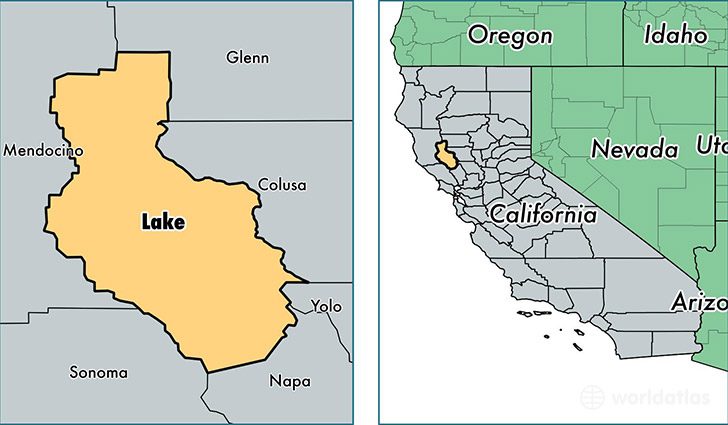Lake County Supervisors rescind medical marijuana dispensaries ordinance
| LAKEPORT, Calif. – In response to a referendum effort, the Board of Supervisors voted unanimously on Tuesday to rescind a medical marijuana dispensaries ordinance passed in August and directed county staff to enforce the county’s zoning ordinance, which county officials said doesn’t allow dispensaries.
The new ordinance cut the number of dispensaries countywide roughly in half, limiting them to five, and was met with opposition in the form of a referendum effort that county Registrar of Voters Diane Fridley told the board Tuesday had enough signatures to go on the ballot.
However, that referendum appeared to result in unexpected consequences for local dispensaries as a result of the board’s Tuesday action.
As part of the vote, the board directed the Community Development Department to take necessary and consistent enforcement action against existing dispensaries – which are not specifically allowed under the county’s zoning ordinance – based on complaints.
Since the dispensaries ordinance was passed and the referendum effort started, there have been federal appellate court decisions and federal enforcement actions clouding the matter of state versus federal law over medical marijuana. That raised concerns for board members.
While county staff said the zoning ordinance doesn’t allow for dispensaries, that wasn’t the view of some community members, including Phil Murphy of Finley, who said there was a good chance the county could get sued over its zoning.
He urged the board to go back to the drawing board and come up with another ordinance. “The more you limit access the more you enable the criminal element to gain the upper hand here. That’s just the reality of it.”
Supervisor Denise Rushing – who did not vote to pass the ordinance in August – asked Murphy about what form a new ordinance should take. Murphy replied that it had to reflect reality and be workable.
“Work for the interests of this community first,” said Murphy, adding the board didn’t work for Washington, DC.
Supervisor Rob Brown, concerned about what actions the board could take in light of the federal crackdown, said, “In a situation like this, you make the best decision that you can.”
He said most of the people he’s been in contact with were grateful for the ordinance the board passed. He also felt that getting sued for not having enough dispensaries was a “shallow threat,” pointing to the city of Lakeport, which doesn’t allow dispensaries and has not been sued. “We will, however, see challenges from the federal government that we cannot afford,” Brown said.
Brown also raised issues with signature gatherers for the referendum. He said he spoke with three of them, who he said were giving false information to people.
Community Development Director Rick Coel said for the last few years he and other county officials, as well as the board, have tried to resolve a “very complex” issue.
Coel said they had reached a compromise. “We’re back to square one. The zoning ordinance clearly does not allow dispensaries.”
He said it’s still not clear which of the county’s dispensaries actually meet state requirements for being organized as nonprofits. Some of the dispensaries applying to the county to operate under the dispensaries ordinance didn’t have that nonprofit paperwork in order.
Numerous jurisdictions have banned dispensaries outright. “There’s a lot of reasons why they’ve done that,” said Coel, who also asked the board for direction on what his department should do next.
Lake County Chamber of Commerce Chief Executive Officer Melissa Fulton said California is in a quandary due to the conflict between state and federal law.
She said the ordinance would have served a majority of residents. “The chamber spoke on behalf of many, many people in this county who do fear retribution if they speak in public as being against dispensaries.”
Fulton asked how many more hundreds of hours were going to be spent on the issue. “It’s a mess. It’s an absolute mess.”
Businessman Gary Olson said the federal government has “had 15 years to bring the hammer down” on California for its marijuana laws.
“I think you ought to let this thing go. Let it go to the referendum,” he said.
During the meeting Brown said he knew that many people who backed the referendum were drug dealers trying to hide behind the skirts of legitimate patients. “They’ve asked for it,” he said. “It wasn’t enough, they want more. This is what they’ve caused … You have them to thank for this.”
Murphy said there was an effort to get the county to acknowledge the fact that the status quo with dispensaries was not creating significant problems and that if a dispensary was in compliance, its efforts would be respected and protected.
“That’s what the original ordinance was allowing for,” replied Brown.
Murphy suggested that if they wanted to make the criminals happy, then the county should close all the dispensaries. “That’s the best possible outcome for them. And it’s the worst possible outcome for everyone else.”
Supervisor Anthony Farrington called it a hard issue, explaining that legalization needed to happen at the federal level. “It’s something much larger than us as a local body.”
Farrington acknowledged the thousands of postcards the board had received from county residents in support of banning dispensaries entirely. However, he said the board had still wanted to find a compromise.
He said the uprising against the referendum did not involve consumers and patient advocates but had instead been carried out by profiteers. Farrington said the bomb threats and legal threats, and the hiring of a political operative out of Chico – who personally called him to threaten recall – came out of those interests, and didn’t represent the community.
“Integrity in the process is important,” he said. Like Brown, he faulted the signature gathering process, explaining how a signature gatherer told him the Board of Supervisors had taken money in exchange for passing the ordinance.
Farrington said they needed a clean slate, and he supported rescinding the ordinance, forcing all dispensaries to shut down and beginning the negotiations process from there.
Supervisor Jeff Smith, who like Rushing had voted against the ordinance, wanted the board to rescind the document, make modifications and bring it back. He said he felt they were very close with some changes, but added he was hesitant because of his concerns about federal law.
“Every time we turn around we’re getting slapped down one way or the other,” he said.
Farrington said they could rescind it and direct code enforcement to act on those dispensaries operating illegally.
Brown questioned why they would want to bring another ordinance back in light of federal action. “Staff already has enough to do without creating ordinances that are in conflict with federal law.”
Brown moved to rescind the ordinance and direct staff to take action consistent with other code enforcement actions. Farrington seconded, and before the vote was taken Smith asked if the action was clear to Coel.
Coel, noting they’re not entirely complaint driven, said his department has to be consistent in its approach.
The board voted unanimously to rescind the document.
Farrington indicated he wanted a separate discussion brought back to the board in the near future to consider how code enforcement should move forward.
E-mail Elizabeth Larson at elarson@lakeconews.com . Follow Lake County News on Twitter athttp://twitter.com/LakeCoNews, on Tumblr at www.lakeconews.tumblr.com, on Facebook athttp://www.facebook.com/pages/Lake-County-News/143156775604?ref=mf and on YouTube athttp://www.youtube.com/user/LakeCoNews . |





